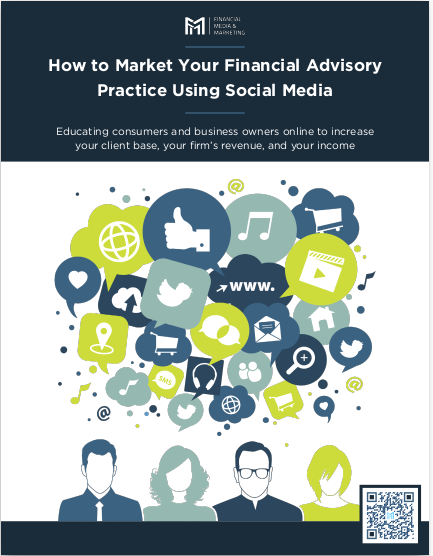Key Takeaways:
-
To stay ahead in 2025, financial advisors must prioritize value-driven content that speaks directly to their ideal clients’ needs and concerns.
-
Leveraging data analytics, automation, and personalized engagement can transform your content marketing into a powerful lead-generation machine.
Why Traditional Marketing No Longer Works for Financial Advisors
Marketing strategies that worked in the past—such as cold calling, generic email blasts, and traditional advertisements—are becoming less effective in 2025. Today’s clients demand personalized, relevant, and insightful content that helps them make informed financial decisions. If you’re still relying on outdated tactics, you’re missing out on the opportunity to engage and convert high-quality leads.
Additionally, consumer behaviors have shifted due to increased reliance on digital platforms and AI-driven recommendations. Potential clients expect on-demand access to high-quality information and are more likely to engage with advisors who provide meaningful content rather than generic sales pitches. To stay relevant, financial advisors must adapt to modern marketing strategies that focus on client education and relationship-building.
Building a Strong Content Marketing Strategy in 2025
To attract and retain clients, you need a structured approach to content marketing. Here’s how you can develop a high-impact strategy:
1. Identify Your Ideal Client Profile
Your content should be tailored to the exact audience you want to reach. Ask yourself:
-
Who is your ideal client? (Age, income level, financial goals)
-
What challenges are they facing in 2025?
-
What financial topics interest them the most?
Creating audience personas will help you craft content that speaks directly to their needs and concerns. The more specific your persona, the more targeted your content will be. Consider gathering insights through surveys, social media interactions, and website analytics.
2. Create High-Value, Educational Content
Your content should position you as a trusted financial expert. The best way to do this is by producing informative and engaging material, such as:
-
In-depth blog posts on financial trends and investment strategies
-
Downloadable guides on retirement planning, tax-saving strategies, or wealth management
-
Webinars and live Q&A sessions addressing the latest financial concerns
-
Short-form videos explaining key financial concepts in a simple, engaging way
Beyond basic educational content, consider offering exclusive insights and research that your audience can’t find elsewhere. Regularly updating your content with fresh perspectives will keep clients engaged.
3. Use Data-Driven Insights to Optimize Your Content
In 2025, content marketing is no longer just about creating content—it’s about creating the right content at the right time. Use analytics tools to track:
-
Which topics get the most engagement
-
What content formats your audience prefers
-
The time of day or week your audience is most active
This allows you to refine your strategy and continuously improve your results. Also, consider A/B testing different content styles to determine which resonates most with your audience.
4. Leverage AI and Automation for Personalization
AI-driven content tools and automation platforms can help you deliver hyper-personalized experiences. Here’s how:
-
Automated email campaigns based on user behavior (e.g., sending a follow-up guide to someone who read an article on retirement)
-
Chatbots for real-time engagement that provide instant responses to client inquiries
-
Dynamic website content that adapts based on user preferences
AI can also enhance client segmentation, allowing you to tailor messaging to specific demographics based on their financial interests and behaviors.
The Best Content Formats to Focus on in 2025
1. Long-Form Blog Content with SEO Optimization
Longer blog posts (1,500+ words) continue to dominate in 2025. Google prioritizes content that provides deep insights and authoritative information. Make sure to:
-
Use keyword research to optimize for search engines
-
Break up text with subheadings, bullet points, and images
-
Add internal links to keep readers engaged with your content
Additionally, updating older blog posts with fresh statistics and insights can help maintain strong search rankings.
2. Interactive Content for Higher Engagement
People love interactive content. Consider adding:
-
Financial calculators (e.g., retirement savings estimators)
-
Quizzes to help users determine their investment style
-
Polls and surveys to gather insights and increase engagement
Interactive content can be a great lead-generation tool, capturing user data in exchange for valuable insights.
3. Video Marketing and Live Webinars
Video content continues to outperform text-based content in engagement. Leverage:
-
Short-form educational videos for social media
-
Live Q&A sessions to build trust and answer client concerns
-
Webinars with industry experts discussing financial trends
With platforms like YouTube and TikTok dominating, financial advisors should experiment with different video formats to capture audience attention.
4. Personalized Email Newsletters
Email marketing remains one of the most effective ways to nurture leads. Instead of generic newsletters, create highly segmented content based on user behavior.
Distributing Your Content Effectively
Creating great content isn’t enough—you need to distribute it strategically.
1. Optimize for Search Engines (SEO)
Use on-page and off-page SEO strategies to improve search rankings and increase organic traffic.
2. Maximize Social Media Engagement
-
Share insights on LinkedIn to attract high-net-worth clients
-
Use Twitter for real-time updates and financial news
-
Post engaging short videos on Instagram and TikTok
Be sure to tailor content for each platform’s audience and preferred content format.
3. Paid Advertising for Higher Visibility
Invest in:
-
Google Ads targeting specific financial topics
-
Social media ads focused on your ideal client profile
-
Retargeting campaigns for people who visited your website but didn’t convert
A well-planned ad campaign can amplify your organic reach and drive more qualified leads.
Measuring Your Content Marketing Success
To ensure your strategy is working, track these key performance indicators (KPIs):
-
Website traffic and time spent on page
-
Conversion rates (e.g., sign-ups for consultations or downloads)
-
Engagement metrics (shares, comments, and likes)
-
ROI of paid advertising campaigns
Use this data to refine your content and improve future results. Consider setting quarterly performance goals to measure incremental growth.
The Path Forward: Stand Out in 2025 with Strategic Content Marketing
By implementing a value-driven content marketing strategy, you can attract high-quality leads and establish yourself as a go-to financial expert in 2025. Focus on creating high-impact content, leveraging AI-driven personalization, and optimizing your distribution strategy to achieve long-term success. The future belongs to advisors who embrace innovation, continuously refine their content, and build meaningful client relationships.










